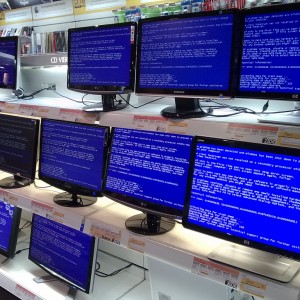
I’ve made some mistakes.
I know, I know. You’re saying, “Haven’t we all?”
Yeah, well, my mistakes have been pretty big. My most publicly visible mistake landed me in federal prison for roughly two years. Not recommended, by the way. If you want, you’re welcome to read the full story about why I took my little forced sabbatical.
What I want to focus on here is what I’ve learned about the nature of making mistakes.
Mistakes are terrible and beautiful things. What it all ultimately boils down to can be found in a small passage written by a fellow mistake-maker twenty centuries ago.
And we know that God causes all things to work together for good to those who love God, to those who are called according to His purpose.
— Romans 8:28, NASB
Whether you believe in the Christian faith or not, there’s a powerful truth to be seen here, especially when we consider this in the context of mistakes.
We’re human, which means we’ll screw up.
But God — be that the God of any particular faith, the divinity with each person, or simply the unconscious perseverance of the human spirit — can even use our mistakes to help us.
As someone who holds to a generally Christian belief system, I don’t personally believe that every circumstance I find myself in came as a result of God “interfering” with my life to lead me to make mistakes, only to teach me lessons like some manipulative schoolmarm. Sometimes our circumstances are simply the result of our own selfishness, ignorance, pride, naivety, or other human failing. Sometimes — possibly most of the time — we do this to ourselves.

Take for example my little trip to FPC Texarkana. Could I reasonably argue that I was a victim of circumstance? Absolutely. However, I’m still at fault. I must own the mistakes that contributed to my circumstance — blindly trusting superiors, avoiding confrontation, allowing myself to miss warning signs, staying too busy with side work, and other similar “small” things that had a mighty cumulative effect over the six relevant years. Why must I own that? Well, so I can learn from them.
That, I believe, is one of the crucial components my mistakes being used for my good. I have to be willing to learn from mistakes, to grow. This isn’t a pleasant process, but it’s certainly better than the alternative. Consider the following.
Progress, far from consisting in change, depends on retentiveness. When change is absolute there remains no being to improve and no direction is set for possible improvement: and when experience is not retained, as among savages, infancy is perpetual. Those who cannot remember the past are condemned to repeat it.
— George Santayana, Reason in Common Sense: The Life of Reason Volume 1
The mistake is made, often resulting in pain. That’s usually unavoidable. But that doesn’t have to be the end of the story.
Have I had some failures? Well, yes, from a certain point of view.
However, I prefer to say I’ve had some learning opportunities, and I hope and pray that I’ve properly capitalized on them.